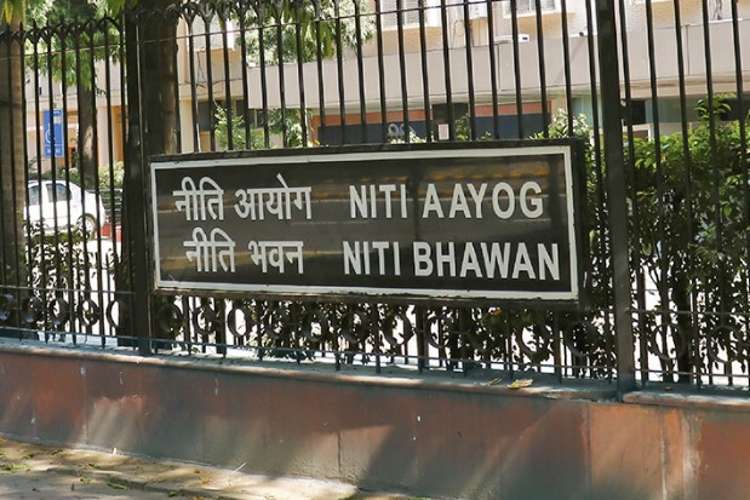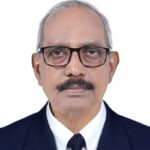
Planning Commission to NITI Aayog: Economic planning involves decision making regarding the fair utilisation of resources to achieve objectives such as economic development, higher standards of living, employment, social justice, economic stability, and balanced growth. Planning in India began in 1950, inspired by the Soviet model of economic planning. Prime Minister Jawaharlal Nehrur eplicated the Russian example within a mixed economic framework that incorporated the elements of both capitalism and socialism. This framework allowed the coexistence of public and private sectors, with public welfare and market mechanisms operating alongside each other.
The Planning Commission was established in March 1950 to control and develop key basic and heavy industries and services, mineral resources, railways, waterways, shipping, and other public utilities and large-scale industries likely to be monopolistic in character. Its goals were to achieve maximum output, thereby raising national and per capita income levels, achieving full employment, and reducing income and wealth inequality to provide social justice.
READ | Low Emission Steel Standard: Germany sets the bar high for green makeover
Despite being a non-constitutional and non-statutory body, the Planning Commission played a crucial role in utilising public investment to address regional inequalities and acted as an institutional intermediary between the Union and state governments.
National Development Council
The National Development Council was established in August 1952 to strengthen and mobilise resources and efforts to implement the Five Year Plans promoted by the Planning Commission, ensuring balanced and rapid development across the country. The NDC included the Prime Minister, Union Cabinet Ministers, Chief Ministers of all states, representatives of Union territories, and all members of the Planning Commission.
Over time, complaints arose from states about resource sharing and transfers from the Planning Commission and NDC, primarily due to the concentration of power with the Union government and its political compulsions. Planning Commission transfers remained outside the constitutional mechanism, involving both plan and non-plan account transfers. Major criticisms included a lack of transparency and accountability, low growth rates, persistent poverty and unemployment, and failure to reduce income and wealth inequality.
Planning Commission to NITI Aayog
Discussions about reforming or revamping the Planning Commission occurred, but rapid liberalisation policies and the assumption of power by the NDA government led by Narendra Modi in 2014 led to its dismantling. A new institution, the National Institution for Transforming India (NITI Aayog), was established on January 1, 2015.
The governing council of NITI Aayog includes the Prime Minister, chief ministers of all states, lieutenant governors of Union territories, Aayog vice chairman, and chief executive officer, as well as experts nominated by the Prime Minister. NITI Aayog established hubs to facilitate the interface between states and the Centre and to promote knowledge and innovation. The most significant hub aimed to build up the think tank acumen of NITI Aayog.
NITI Aayog’s objectives involve a shared vision for implementing strategies requiring participation from both central and state governments for national development across different sectors. A key feature of NITI Aayog is cooperative federalism, involving state governments, the central government, and local governments. It aims to create credible planning for village development, focusing on the growth of vulnerable sections, including women and children. Additionally, it emphasises innovation to create knowledge and entrepreneurial support by collaborating with experts and partners from India and abroad, along with technology upgrades and capacity building.
Key initiatives of NITI Aayog
NITI Aayog’s initiatives include a 15-year roadmap, a 7-year vision, strategy, and action plan, AMRUT, Digital India, Atal Innovation Mission, medical education reform, agriculture reform, Swachh Bharat Abhiyan, and efforts to eradicate poverty.
NITI Aayog remains an advisory think tank, undertaking extensive research and publishing reports on different sectors of the economy and society. It does not have the power to impose policies or allocate funds. Previously, the Planning Commission had the authority to allocate funds depending on the projects. Under NITI Aayog, the power to allocate funds solely rests with the Finance Ministry.
Financial transfers and cooperative federalism
Different types of transfers from the Centre to States and Union Territories exist, including the devolution of taxes and discretionary grants by the Finance Commission. However, the lack of clear criteria for discretionary transfers can introduce arbitrariness into the distribution of federal transfers, affecting cooperative federalism.
NITI Aayog needs to prioritise its objectives with a clear understanding of the differences in policy, planning, and strategy. It must ensure greater trust, faith, and confidence with more liberal budgetary provisions to federal units. Decentralised planning has not gained much momentum except in some states like Kerala and Sikkim.
Cooperative federalism can work effectively only through structured support initiatives and mechanisms that recognise strong states make a strong nation. Credible employment-generating rural plans are needed to uplift the rural poor. Bureaucratic inertia needs to be addressed by fixing accountability and rewarding quality service promptly.
The government should further improve governance and implement innovative measures. Overall, NITI Aayog should be proactive in creating an efficient, transparent, accountable, and innovative governance system with credible work ethics to achieve cooperative federalism. Whether through five-year plans, rolling plans, perspective plans, or NITI Aayog schemes, it should deliver desirable development levels to promote cooperative federalism in theory and practice.
Dr Ravindran AM is an economist based in Kochi. He has more than three decades of academic and research experience with institutions such as CUSAT, Central University of Kerala, Cabinet Secretariat - New Delhi, and Directorate of Higher Education Pondicherry.


